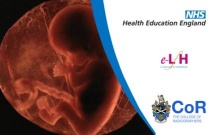Client Satisfaction as Quality Indicator in Medical Laboratory Services
Dr. Francisca Obiageri Nwaokorie
Over the years, client satisfaction has been at forefront of any service oriented processes. The medical laboratory test result is a major decider in the conventional approach to diseases diagnosis. It is said to provide over 70% of the evidenced based requirements for accurate diagnosis. Laboratory test result is a product for....
Adolescent Health
Dr Zakira Sablay, Ariane Spitaels, Dr Rebecca Sher
Adolescents seem to be the "black sheep" of medicine. We are joined by Dr Zakira Sablay from the Adolescent Centre of Excellence and Dr Rebecca Sher to talk about the challenges of setting up a centre for adolescents and how to manage these patients with complex chronic conditions.
Paediatric CXR in Suspected Infection: Some Tips and Tricks
Prof Tracy Kilborn
Prof Tracy Kilborn gives a fantastic approach to the Paediatric CXR. Her approach include: 1. What are you looking for, what is the clinical context? 2. Technical aspects 3. Is there air trapping? 4. Mediastinum/airways 5. Black: pneumothorax, airway, cysts, symmetry, fluid level, etc 6. White: consolidation, groun....
SA Thoracic Society Diagnosis and Management of Comunity-Acquired Pneumonia
Robin Green, Heather Zar, David Moore/Shabir Madhi, David Moore, Theunis Avenant, and Ziyaad Dangor
SAPA webinar 19 Aug 2020. The authors of the 2020 South African Thoracic Society guidelines go through the diagnosis and management of community-acquired pneumonia in children.
Beating Burnout - An Inside Job
Prof Suvira Ramlall
A very popular talk from the SAPRA wellness workshop on 4th December 2021 by Prof Suvira Ramlall on how to take care of ourselves.
Procedural Pain Management in Children
Dr Dean Nolte, and Sr Angie Skrikker
SAPA education webinar 25 November 2020. Anaesthetist Dr Dean Nolte talks through peri-procedural pain management in children, and Sr Angie Skrikker highlights non-pharmaceutical aspects.
Back to School in the Second Wave?
Dr Despina Demopoulos
The issue of whether children should return to school or not has come up again at the start of 2021, as SA tries to deal with a devastating second wave of COVID. But SAPA still thinks children should return to school immediately. In this webinar, Dr Despina Demoupolos, SAPA EXCO member, discusses the evidence and the reasons for....
Introduction to neonatal cranial ultrasound
Alan Horn
Prof Alan Horn, neonatologist, goes through the basics of cranial ultrasound in neonates. A must view for all paediatric registrars.
Getting started in your research: Data collection and data management
Dave le Roux
SAPA webinar 28 April 2021. Dr Dave Le Roux tells you all you need to know when you're starting out, to make your research journey easier. He covers the research process, data management, data collection, data cleaning and (a very little bit about) analysis.
Paediatric feeding and swallowing issues
Vivienne Norman, and Dr. Dirk Von Delft
Learn about feeding and swallowing issues in children, surgical options for such issues.
Neonatal Anaemia and Transfusion Thresholds
Michael Harrison
Learn about the Neonatal Anaemia and Transfusion Thresholds.
NCD Knowledge & Skills M1 Asthma
Primary Care International (PCI)
Here we'll explore how to diagnose and manage asthma.
NCD Knowledge & Skills M2 Diabetes in Pregnancy
Primary Care International (PCI)
Here will cover the diagnosis and management of diabetes in pregnancy.
NCD Operations M4 Principles of Health Education
Primary Care International (PCI)
Take a moment to think about the consultations you have daily with patients living with NCDs. Whether the NCD is diabetes, cardiovascular disease, chronic respiratory disease, or cancer, you will systematically go through diagnosis and management. But in order to properly manage your patients, you need to educate them abou....
NCD Knowledge & Skills M2 Heart Failure
Primary Care International (PCI)
Here will explore how to diagnose and support patients with heart failure.
NCD Knowledge & Skills M3 Diabetic Foot Assessment
Mr WCEA Administrator
Here we will look at how to conduct a diabetic foot assessment.
Hypersensitivity Pneumonitis
Russell Jones
This session reviews the aetiology, pathology and radiology of hypersensitivity pneumonitis (HP), also known as extrinsic allergic alveolitis.
CXR: Reticular Patterns (Differential)
Jonathan Benham
This session describes the common causes of linear or reticular patterns on chest radiographs (CXR).
Chest Trauma: Plain Film Signs, Key Signs and Pitfalls
Roderick Robertson and Saeed Mirsadraee
The chest x-ray (CXR) can influence both early and late decisions in the management of major trauma. It is necessary to understand the mechanics of trauma and the influence of this on CXR interpretation, with particular reference to further investigations.
Anterior Mediastinal Masses
John Reynolds
This session begins with a brief review of some key points of anatomy relating to the mediastinum on the chest radiograph (CXR). Following this is an overview of the radiological appearances (plain film and cross-sectional).
HIV AIDS in the Thorax
John Holemans
This session will outline thoracic complications of human immunodeficiency virus/acquired immunodeficiency syndrome (HIV/AIDS) in adults and illustrate the radiological features in a series of HIV/AIDS-related cases.
Guidelines for the Management of Suspected Acute Pulmonary Embolism
John Reid
This session introduces the learner to the British Thoracic Society (BTS) guidelines for the diagnosis and management of suspected acute pulmonary embolism (PE), which have been accepted and implemented by most institutions in the UK.
Ultrasound Assessment of the First Trimester of Pregnancy
Anne Marie Coady
Ultrasound has changed the medical approach to early pregnancy problems. This session will equip you with knowledge of the typical ultrasound appearances of normal early pregnancy development and the pitfalls, which is essential for the diagnosis and management of normality and early pregnancy failure.
Endometriosis
Jane Hawnaur
This session looks at the diagnosis of endometriosis using different diagnostic techniques including ultrasound and magnetic resonance imaging (MRI).
Image Interpretation - Gynaecological Ultrasound: Abnormal Early Pregnancy
Hazel Edwards
This session will discuss the ultrasound appearances of common early pregnancy complications including subchorionic haemorrhage, miscarriage, pregnancy of unknown location, ectopic pregnancy and gestational trophoblastic disease.
























